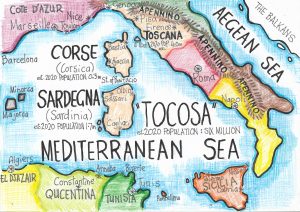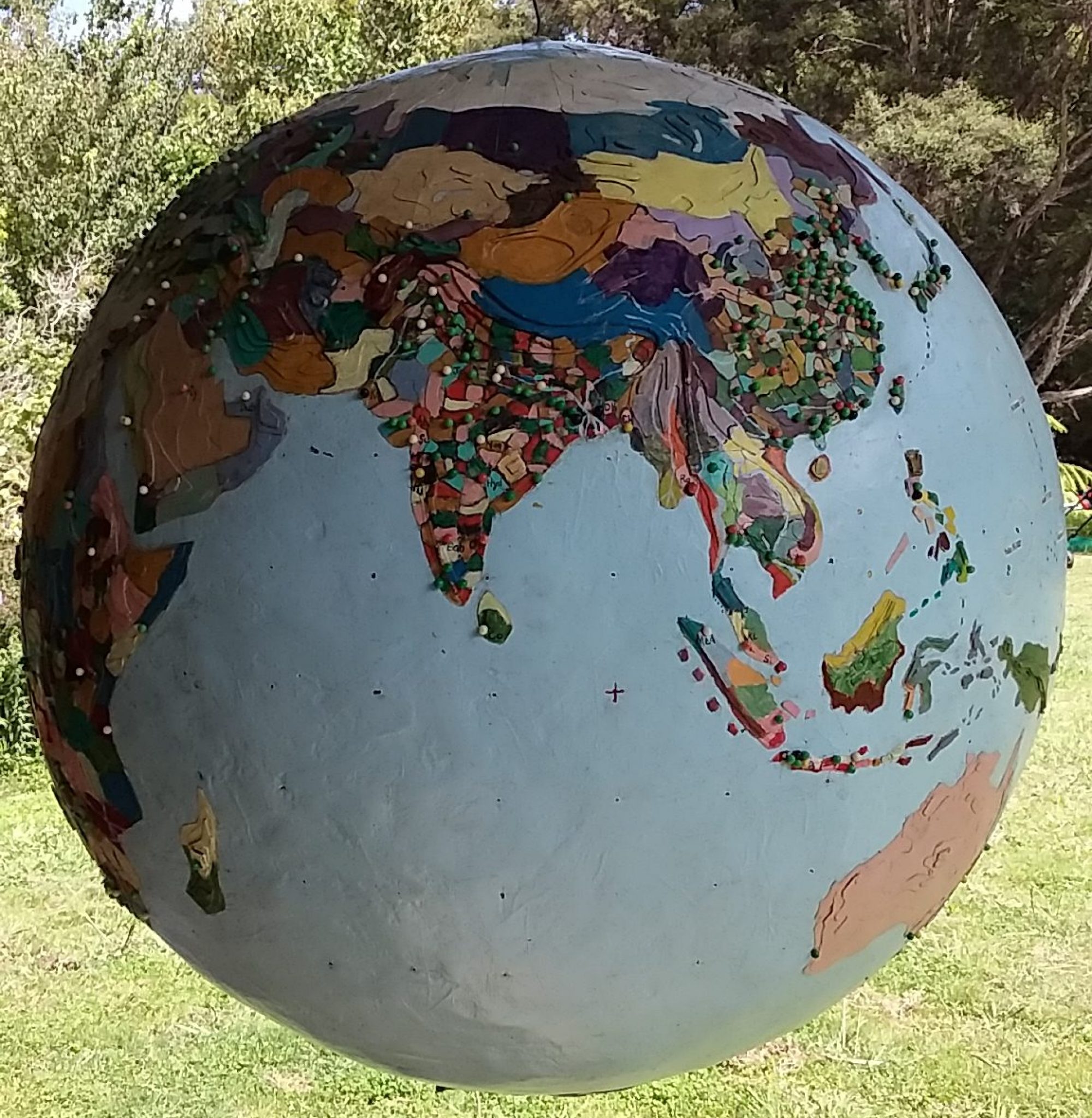
Millisphere (noun) at discrete region inhabited by roughly one thousandth of the total world population. About seven million but anywhere between 3.5 and 14 million will do.
In February 2018 French president Emmanuel Macron visited the fractious French Mediterranean island of Corsica where nationalist, anti-French sentiments go back centuries. If Spain has Catalonia, France has independence movements in Brittany, Alsace, Provence and Corsica.
“France is playing with fire by rejecting Corsican demands for autonomy,” said newly elected Corsican Nationalist leader Gilles Simeoni, voicing local sentiment.
With a population of 330,000 Corsica doesn’t qualify as a millisphere. Combined with it’s Italian near neighbour, Sardinia (population 1.7 million), they make two million but don’t meet the 3.5 to 4 million cut-off.
Divided by the narrow Straits of Bonifacio they share an ancient history including being conquered by Rome. The fierce and rebellious inhabitants were not considered good slaves and the mountainous centre of the islands were avoided by the Romans.
Complex shifting alliances orbited around northern Italy and Pisa until Genoa sold Corsica to France to pay off debts in the eighteenth century. To this day the Corsican and Sardinian bourgeoisie send their children to be educated in Pisa and if more people are needed to form a millisphere it should be with Tuscany in Italy, not Provence in France.
Steamboats, Napoleon, jobs in the army, language, empire and prestige drew Corsica into France’s orbit in the nineteenth century. Taking advantage of the chaos of the French revolution Corsican soldier Napoleon Bonaparte (of Italian descent) quickly rose through the ranks of the French army, becoming first emperor of France and then king of Italy before being exiled to island of Elba (between Bastia in Corsica and the Italian mainland).
Bastia Hill, in Whanganui, is named after the town in northern Corsica where the Georgetti family came from and a friend of mine, and a Georgetti descendant, went there to check it out. “There would be men outside drinking coffee and there would always be one watching you,” he said sensing its reputation for banditry. Corsican number plates ensured avoiding road rage while driving in the continent he told me. “No one in their right mind would nut off at a Corsican.”
From the days of Carthage (near Tunis), before Christ, Sardinia in the south has had links with North Africa. Barbary pirates from Tunisia raided Sardinia for slaves until the late eighteenth century and today there is a weekly ferry from Cagliari in Sardinia to Tunis. In good weather a fast boat carrying illegal immigrants can cross from Algeria in one night.
During the Algerian war for independence thousands of “Pied-noir” (European Algerians) were resettled in Sardinia where they found the locals less than welcoming. Around 100,000 boat people arrive from North Africa in Italy every year, 10.000 of them in Sardinia. Once again finding the locals less than welcoming these refugee then try to carry on to the Italian mainland and the larger capitalist cities of Western Europe.
The people of the rural villages of Sardinia, along with some Japanese in Okinawa, have the longest life expectancy in the world but because of emigration and a low birthrate some years the island’s population is actually shrinking and lacking the people to care for an aging population. Some North African immigrants would be useful for elder care.
Recently there was an incident with North African tourists on a Corsican beach. Some Corsican youths were photographing Muslim women swimming in “burkinis” when one their menfolk protested and stabbed a Corsican youth. Returning with the entire village the youths attacked the bathing tourists and torched their cars.
Corsica, which is included in the Provence, Alpes, Côte d’Azur European Union region, receives too many subsidies from Paris to want full independence but it now wants more autonomy, language recognition and the release of nationalist prisoners held on the French mainland.
Just as the steamboat changed geography in the nineteenth century cheap airfares have changed the twentieth century. Corsican grievances now include absentee holiday home owners form Europe pricing the locals out of the housing market.
DH Lawrence, when he visited Corsica, described it as “belonging to nowhere, never having belonged to anywhere.”
